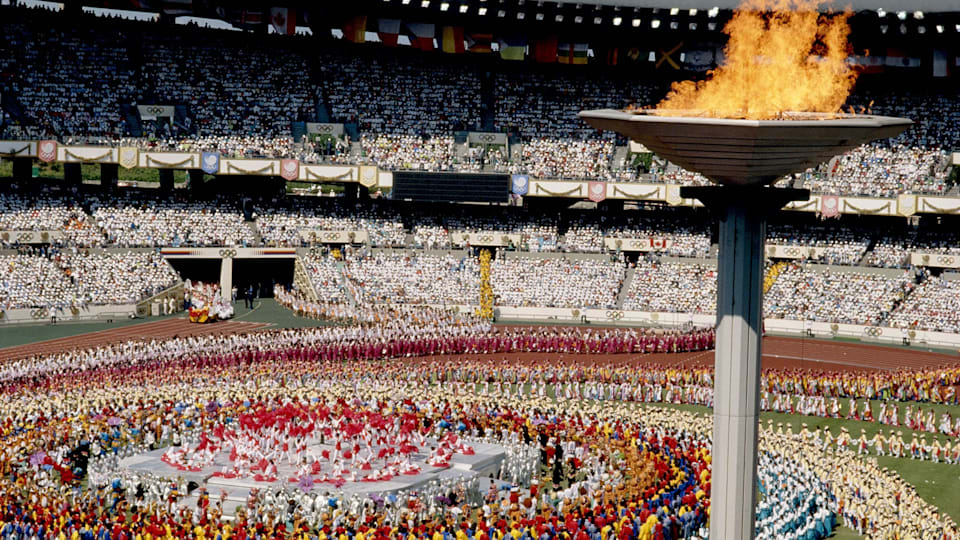The Legacy of Seoul 1988 inspires Pyeongchang 2018
The Korean peninsula is no stranger to the transformative effects of the Olympic Games. Seoul 1988 is remembered for raising the international profile of the country and its capital city, and elevating it to the world stage.

It also led to a wide variety of other, tangible long-term benefits – many of which were even more pronounced than the considerable short-term benefits. Ultimately, the Games were so successful that they paved the way for the Repulic of Korea to host the Olympic Games a second time – this time the Olympic Winter Games next month in PyeongChang.
Economic And Social Benefits
The Olympic Games in 1988 opened both Seoul and the Republic of Korea to the world. In the process, the Games became a forum for diplomatic relations, reaching across political divides and building economic relationships with a number of countries. They also became a major catalyst for international trade –the nation's annual trade exceeded USD 100 billion for the first time in 1988, making the Republic of Korea the world's 10th largest trading nation.
The internal economy of the Republic of Korea also benefited. KRW 439.2 billion was invested in IT and communications infrastructure alone, and from 1982 to 1988, Olympic-related projects generated around USD 1.84 billion in work – or 0.4% of the Gross National Product (GNP).
The Olympic Games in 1988 also established a culture of volunteering, which became pivotal to the success of the country's future 'mega' sporting events. In 1988, about half of the total operational staff were volunteers, and this volunteering became a display of national pride. The culture continues to this day, and will mean athletes and visitors to PyeongChang will be assisted by 20,400 volunteers during the Games.
Urban Transformation
The Seoul Olympic Games drove significant urban regeneration projects, and included the construction of new housing, new transport links, and new digital networks.
This investment led to a range of other positive outcomes, including the creation of 20,744 new jobs, and the Republic of Korea cementing its place as one of the world leaders in digital and electronic technology. This association continues today, with Korean technology firms amongst the most successful and recognisable in the world.
The Pyeongchang Games will see similar levels of development. Some 1,522 new apartments have been built in PyeongChang and Gangneung – financed by private investment – and all have been purchased for private occupancy after the Games.
Additionally, a new 113.7km-long high-speed railway line has been built for 300kph trains that can transport more than 20,000 passengers from Seoul to PyeonGchang and Gangneung every day, enabling people to travel from Incheon International Airport to PyeongChang in 146 minutes. Not only will this line improve commuting times in the region, making it more attractive to tourists from the Republic of Korea and other countries, it will also help in reducing carbon costs, and create a model for more sustainable development.
Sporting Legacy
The success of the Olympic Games Seoul 1988 amply demonstrated the Republic of Korea's attractiveness as a sporting destination. This has paved the way for it to host other, similar events – including the Busan 2002 Asian Games, the FIFA World Cup 2002, the Incheon 2014 Asian Games, and now the Olympic Winter Games Pyeongchang 2018.
The 1988 Games also led to the establishment of organised sport in the Republic of Korea, thanks to the formation of new ministries and federations. Following the Games, the USD 300m excess funds generated were used to establish the Korean Sports Promotion Foundation (KSPF).
Since its formation the KSPF has invested around USD 8 billion in sports development. In turn, this investment has paid off in the development of Korean sporting culture. Prior to 1988, the country had won a total of 37 medals at the Winter and Summer Games. The Republic of Korea has won 277 Olympic medals at the Games since and including 1988.
Continuing The Legacy
Today, the Republic of Korea is one of the world's economic leaders, and Korean culture – including its cuisine, music and cinema – is known and admired worldwide. The Olympic Winter Games PyeongChang 2018 will aim to cement these achievements.